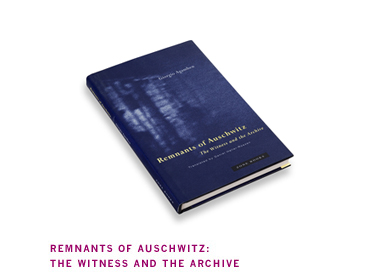 |
 
|
 |
 |
 |
|||||||||||||||
 |

|
||||||||||||||||||
| |
In its
form, this book is a kind of perpetual commentary on testimony.
It did not seem possible to proceed otherwise. At a certain point,
it became clear that testimony contained at its core an essential
lacuna; in other words, the survivors bore witness to something
it is impossible to bear witness to. As a consequence, commenting
on survivors’ testimony necessarily meant interrogating this
lacuna or, more precisely, attempting to listen to it. Listening
to something absent did not prove fruitless work for this author.
Above all, it made it necessary to clear away almost all the doctrines
that, since Auschwitz, have been advanced in the name of ethics.
For my own part, I will consider myself content with my work if,
in attempting to locate the place and theme of testimony, I have
erected some signposts allowing future cartographers of the new
ethical territory to orient themselves. Indeed, I will be satisfied
if Remnants of Auschwitz succeeds only in correcting some
of the terms with which we register the decisive lesson of the century
and if this book makes it possible for certain words to be left
behind and others to be understood in a different sense. This is
also a way — perhaps the only way — to listen to what
is unsaid.
Also by this author:
|
||||||||||||||||||
| |
|||||||||||||||||||
| |
|
|
|
|
|
|
|
||||||||||||